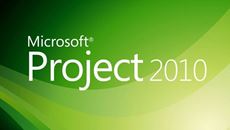- Delivery Method Online
- Professional Certificate
- 24hrs Suggested Study Time
- 3 Months Access
- Tutor Support
- Study On Any Device
- 27584 Students
Project Management Fundamentals

Gain the skills you'll need to succeed in the fast-growing field of project management.
There are more projects occurring today than at any time in history. Organizations initiate projects to create new computer applications, erect bridges and buildings, improve processes, develop new products, and reorganize company operations. Unfortunately, most organisations do not manage projects well, creating an unprecedented demand for project management practitioners.
If you're organised, perceptive, detail-oriented, and an excellent communicator, you just might have what it takes to succeed in the fast-growing field of project management.
In this self-pacedcourse, an experienced Project Management Professional will help you master the essentials of project management. You'll become an indispensable member of your project team by discovering and mastering the critical concepts you need to plan, implement, control and close any type of project.
You'll learn about project politics and ethics, project measurements, and project closure. You'll be able to develop all sections of a project plan, you'll become comfortable with the project management body of knowledge, and you'll develop a variety of powerful techniques to generate project ideas.
If you're new to project management, this course will provide you with the essential information you'll need to prepare for and complete your first project. If you're an experienced project manager, this course will make you more valuable to your employer by increasing your skills and competencies.
Courses are delivered to you through expertly executed lessons, online instruction and interaction with like-minded students. Our courses are designed to deliver all of the benefits of studying in a classroom whilst giving you the flexibility to study at a time and place to suit your needs. You can access your classroom 24/7 from any device with an internet connection.
This course has a 3 month duration. You'll complete comprehensive lessons, quizzes and assignments before submitting your final exam at the end of the course to achieve your certificate. Courses must be completed within the 3 month access period.

Tony Swaim
Tony Swaim has helped many clients, colleagues, and students reach their professional and personal goals. He has been an online instructor since 1998 and has taught at colleges and universities across the United States since 1981. His focus areas ... Read more
Read Tony Swaim's ProfileFrequently Asked Questions
What people are saying about our courses
The Learning Environment
From the moment that you enrol in the Project Management Fundamentals you will become an integral part of our learning community. You'll find yourself with the freedom to learn at a speed that suits you, on any device, from anywhere in the world. Achieving your career goals no longer has to mean compromising family and work commitments.
Ready to get started?
Enrol NowOur Values
Learn At Your Own Pace
We believe in personalised learning. That's why we provide all the tools and support you need to succeed at your own pace. With flexible learning, you'll stay motivated and retain more information. Plus, you can balance your studies with work and family commitments to make your dreams a reality.
We Won't Break The Bank
Education should be accessible to anyone who wants to learn. That's why we offer some of the most competitive prices in the industry with payments plans for just $25 per week. Investing in your future is a smart choice and doesn’t have to break the bank.
Industry-Led Courses
There's no better way to learn than from experts with years of experience in your field. That's why each of our 200+ industry-led courses are designed to give you a real-life perspective on your industry. With our expert mentors, you'll learn from people who have a wealth of knowledge and experience, and who are passionate about sharing it with you.
Get The Personal Support You Deserve
At Vibe Learning, we're real people who are dedicated to providing you with personal support every step of the way. Our industry experts are not only professional and knowledgeable but also incredibly passionate about sharing their expertise with you. With their guidance, you'll gain invaluable insights and practical knowledge to help you succeed.
Still looking?
Check out the following courses related to Project Management Fundamentals:




